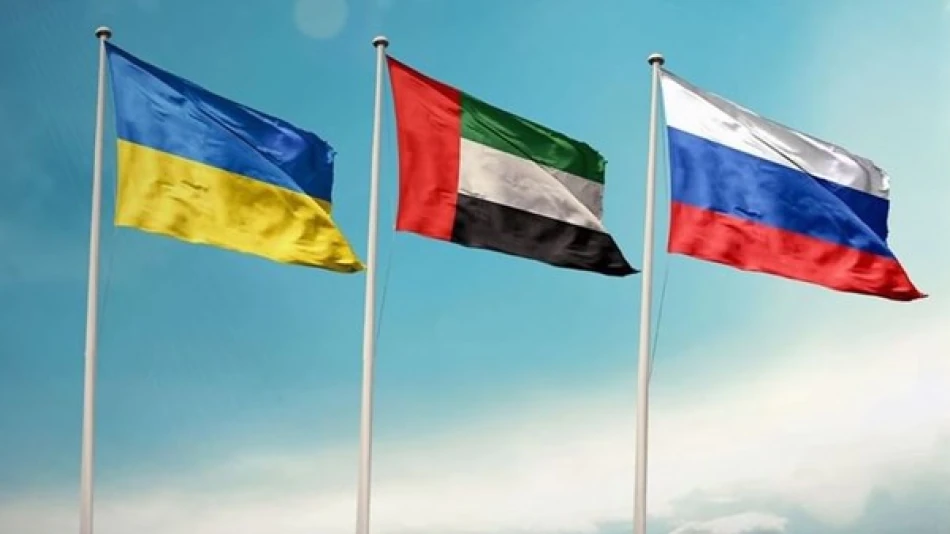
UAE Mediates Prisoner Swap, Secures Release of 292 Captives in Russia-Ukraine Conflict
UAE Emerges as Key Mediator in Ukraine War with 17th Prisoner Exchange Success
The United Arab Emirates has successfully mediated its 17th prisoner exchange between Russia and Ukraine, facilitating the release of 292 prisoners of war—146 from each side. This latest diplomatic achievement brings the total number of prisoners exchanged through UAE mediation to 4,641, cementing the Gulf nation's role as one of the most effective neutral intermediaries in the ongoing conflict.
Strategic Neutrality Pays Dividends
The UAE's success in prisoner exchanges reflects a carefully calibrated foreign policy that has maintained strong ties with both Moscow and Kyiv throughout the war. Unlike Western nations that have imposed sweeping sanctions on Russia, or countries that have explicitly backed one side, the Emirates has positioned itself as a trusted broker capable of engaging all parties.
This approach mirrors Switzerland's traditional neutrality during past conflicts, but with a more active diplomatic component. The UAE's geographic position, economic relationships, and political pragmatism have created unique leverage that larger powers often lack in sensitive negotiations.
Humanitarian Diplomacy as Soft Power
Each successful prisoner exchange enhances the UAE's international standing and demonstrates the practical value of its diplomatic approach. For families on both sides of the conflict, these exchanges represent hope and tangible results—something that broader peace negotiations have failed to deliver after nearly two years of war.
The consistent success rate—17 exchanges without apparent major setbacks—suggests the UAE has developed effective communication channels and trust-building mechanisms with both Russian and Ukrainian officials. This track record could prove invaluable if broader peace negotiations eventually materialize.
Regional and Global Implications
Middle East Positioning
The UAE's mediation success contrasts sharply with other regional approaches to the conflict. While Saudi Arabia has also attempted some diplomatic initiatives, the Emirates' consistent results have established it as the primary Middle Eastern mediator. This role enhances Abu Dhabi's influence in both European and Russian diplomatic circles.
Economic Considerations
The UAE's neutral stance has protected its economic interests with both sides. Russian capital has flowed into Dubai's real estate and financial sectors, while Ukrainian grain exports have continued through UAE trading networks. This economic pragmatism provides the foundation for sustained diplomatic engagement.
Challenges and Limitations
While prisoner exchanges represent significant humanitarian achievements, they also highlight the limitations of the UAE's influence. Despite 17 successful mediations, the broader conflict shows no signs of resolution. The exchanges may even provide both sides with political cover to continue fighting while claiming humanitarian concern.
The UAE's approach also faces scrutiny from Western allies who view continued engagement with Russia as problematic. However, the tangible results—nearly 5,000 prisoners returned to their families—provide strong justification for maintaining these diplomatic channels.
Looking Forward
The UAE's consistent success in prisoner exchanges has established a template for neutral mediation that other countries may seek to emulate. As the conflict potentially enters a more protracted phase, the value of trusted intermediaries capable of achieving incremental humanitarian progress becomes increasingly apparent.
For the UAE, each successful exchange reinforces its position as an indispensable diplomatic player, potentially setting the stage for a larger role in eventual peace negotiations. The question remains whether this humanitarian diplomacy can evolve into broader conflict resolution—or whether it will remain a vital but limited lifeline in an otherwise intractable war.
Most Viewed News

 Layla Al Mansoori
Layla Al Mansoori






